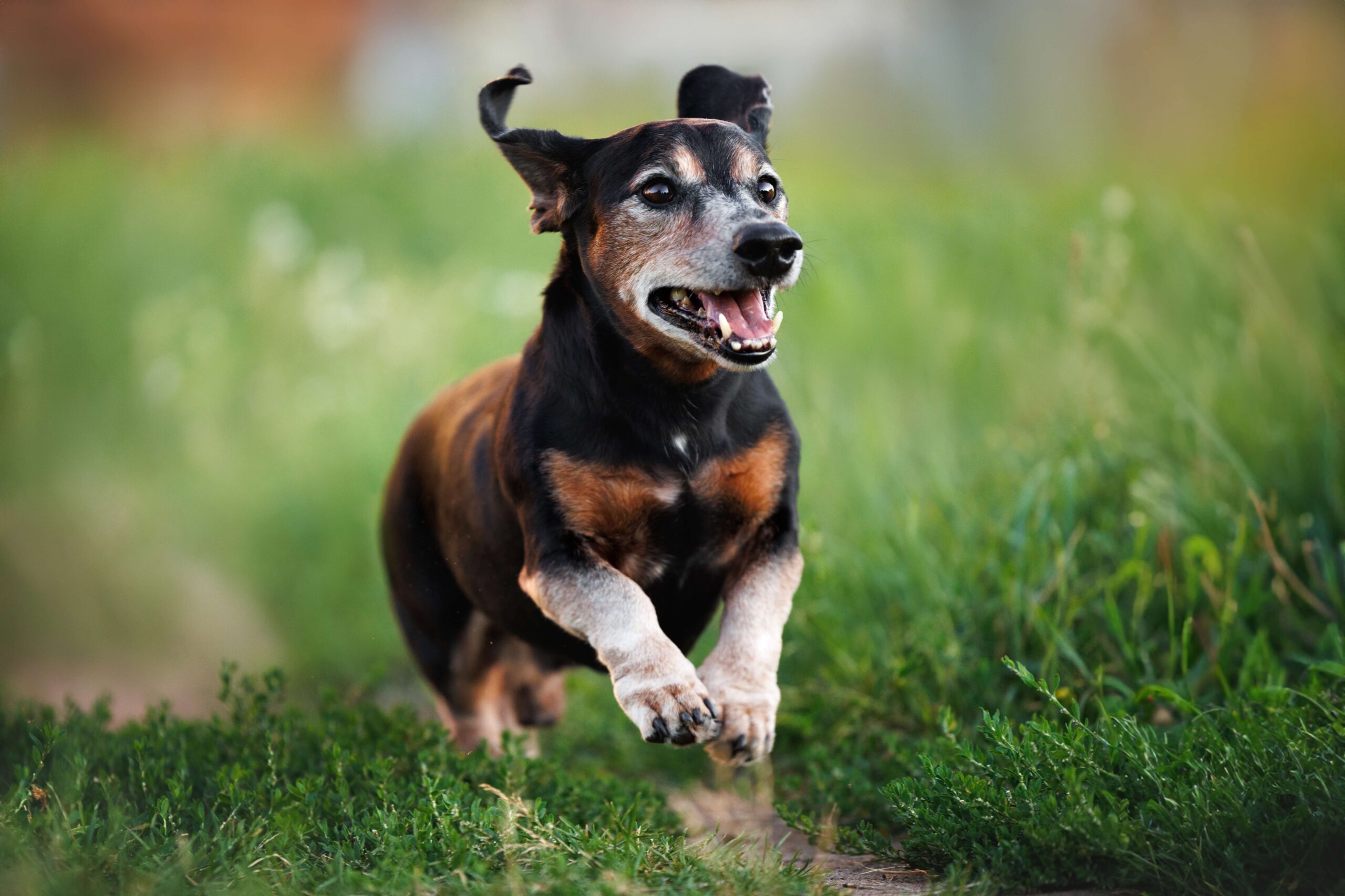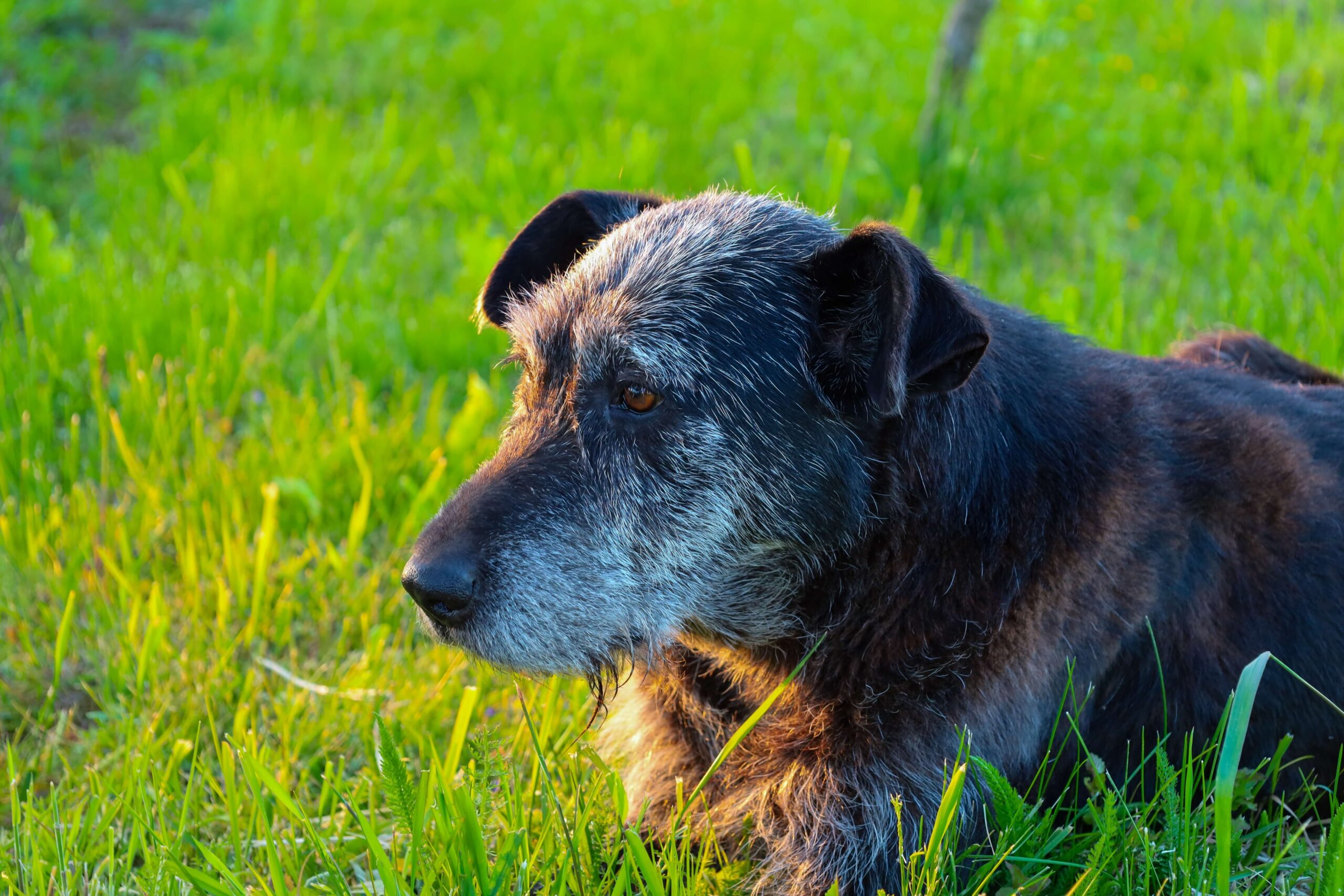Dementia may be something that springs to mind when you think of elderly humans, but did you know dogs can suffer from it too?
Like humans, older dogs are susceptible to developing age-related illnesses like dementia. Also known as Canine Cognitive Decline or Cognitive Dysfunction Syndrome, dementia in dogs progresses in much the same way as it does in humans.
Symptoms
If you have noticed any changes in your dog that lead you to think they could be suffering from cognitive decline, speak to your vet. These symptoms typically start after the age of 9 (earlier in larger breed dogs), but any signs of cognitive decline at any age should prompt a visit to your vet.
Remember that it can be easy to miss dementia as it is slow to develop.

The acronym DISHA is used to look for the common symptoms of dementia in dogs:
Disorientation: This is one of the most recognisable signs of dementia in dogs. This may include getting lost in familiar surroundings or staring into space or at the floor or wall. Dogs often end up pacing around the house and can get stuck behind furniture.
Interaction changes: Your dog may become clingy or withdraw and lose interest in socialising with people or their environment.
Sleep/Wake cycle disruptions: Your dog may be restless in the evenings and struggle to sleep through the night. They may end up pacing and whining or barking. This lack of sleep at night may result in your dog sleeping more in the daytime.
House soiling: Your previously house-trained dog may start to have accidents in the house.
Activity changes: You may find your dog’s activity level decreases along with a decline in their grooming habits and even a lack of appetite. External stimuli like other dogs, sounds or people may also no longer interest them.

Other illnesses which would need to be ruled out before diagnosing dementia include diabetes, Cushing’s Disease, Urinary Tract Infections, kidney disorders, high blood pressure, arthritis and a loss of hearing or vision.
Unfortunately, we don’t understand these degenerative changes in the brain very well, but we know that the number of nerve cells in the brain reduces as dogs age. Free radicals and a buildup of neurotoxic deposits may be contributing factors in the onset of dementia.
Treatment
Treatment protocols will be up to your vet. They may feel your dog would benefit from an anti-depressant, pain control or just some daily supplementation. Good quality Omega 3s are important for cognitive function (EPA and DHA), so these can be useful additives. Anti-oxidants like blueberries and cold green tea can also be added to your dog’s diet, as these aim to slow the progress of the disease by limiting the damage caused by free radicals. Gentle exercise and therapy like acupuncture may also benefit your senior dog with dementia.
In terms of practical changes at home, you should try to limit big changes. For instance, avoid moving furniture around dramatically as this can cause these older dogs to feel confused or get hurt or stuck.
Above all, be patient with them, love them and always be sure to have their quality of life as the main priority.

